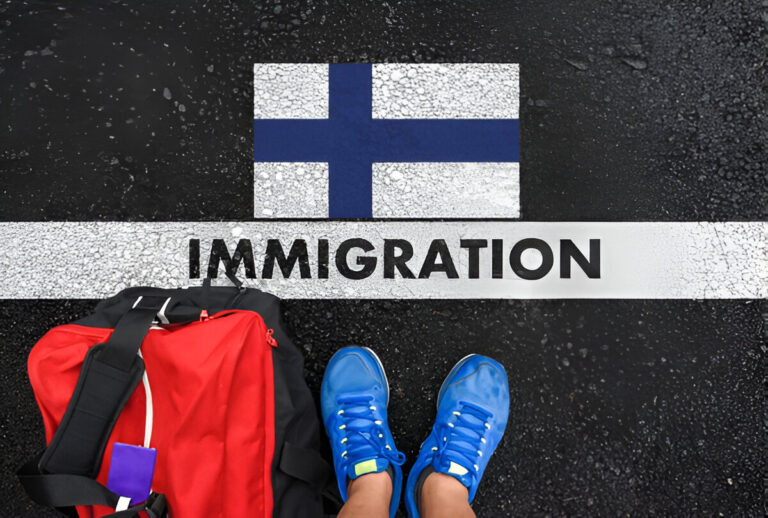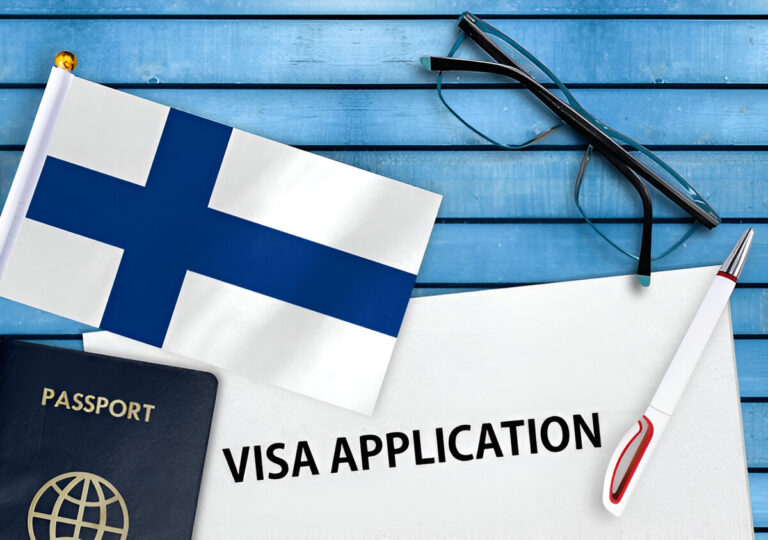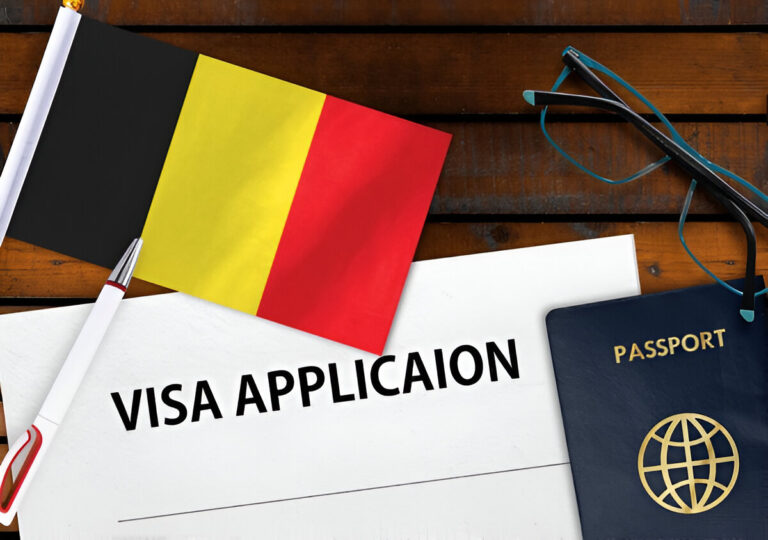Ireland Lawyer for Immigrants – Hire an Attorney in Ireland
Embarking on a new life in Ireland is an exciting venture filled with opportunities and challenges. Navigating the complexities of immigration laws, residency permits, work visas, and other legal requirements can be challenging and exhausting for immigrants. This is where hiring an Ireland Lawyer for Immigrants becomes invaluable.
A skilled attorney can guide you through the legal maze, ensuring that your immigration journey is smooth and successful. This comprehensive guide explores the importance of hiring an immigration lawyer in Ireland, the types of legal services available, eligibility criteria, how to choose the right attorney, application steps, common mistakes to avoid, and essential tips for immigrants seeking legal assistance in Ireland.
What is the Role of an Immigration Lawyer in Ireland?
An immigration lawyer in Ireland specializes in assisting individuals with various immigration-related legal matters. Their expertise ensures that immigrants understand and comply with Ireland’s immigration laws and regulations, facilitating a smoother transition into Irish society.
Key Responsibilities:
- Legal Consultation: Providing expert advice on immigration laws and procedures.
- Documentation Assistance: Helping prepare and review necessary documents for visa and permit applications.
- Representation: Representing clients in dealings with immigration authorities and during legal proceedings.
- Problem Solving: Addressing and resolving issues related to visa denials, deportations, and other legal challenges.
- Updates on Law Changes: Keeping clients informed about any changes in immigration laws that may affect their status.
Importance for Immigrants:
- Expert Guidance: Navigates the complex legal landscape, reducing the risk of errors in applications.
- Time-Saving: Streamlines the application process, saving time and reducing stress.
- Increased Success Rates: Enhances the likelihood of successful visa and permit approvals through professional handling.
Types of Legal Services for Immigrants
Immigration lawyers offer a range of services tailored to meet the diverse needs of immigrants in Ireland. Understanding these services helps in identifying the right legal support required for your specific situation.
1. Visa and Permit Applications
- Work Visas: Assisting with applications for employment permits, critical skills visas, and other work-related permits.
- Student Visas: Helping students secure visas for studying in Ireland, including guidance on required documentation.
- Family Reunification Visas: Facilitating the process for family members to join immigrants in Ireland.
2. Citizenship and Naturalization
- Citizenship Applications: Guiding immigrants through the process of applying for Irish citizenship.
- Residency Permits: Assisting with long-term residency permits and ensuring compliance with residency requirements.
3. Legal Representation
- Appeals and Reviews: Representing clients in appeals against visa denials or deportation orders.
- Legal Proceedings: Advocating for clients in immigration courts and tribunals.
4. Compliance and Legal Advice
- Regulatory Compliance: Ensuring that immigrants comply with all relevant immigration laws and regulations.
- Legal Strategy: Developing strategies to address complex immigration issues and challenges.
5. Employment Law for Immigrants
- Workplace Rights: Advising on employment rights and resolving workplace disputes for immigrant workers.
- Employer Obligations: Helping employers understand their responsibilities when hiring immigrant employees.
Eligibility Criteria for Hiring an Immigration Lawyer
While anyone can hire an immigration lawyer, certain factors can influence the necessity and effectiveness of legal assistance.
1. Complexity of Case
- Simple Applications: Individuals with straightforward visa applications might manage without legal assistance.
- Complex Cases: Those facing visa denials, deportation threats, or complicated legal issues greatly benefit from professional legal support.
2. Language Barriers
- Non-Native Speakers: Immigrants who are not fluent in English may require an immigration lawyer to navigate language barriers effectively.
3. Understanding Legal Terminology
- Legal Jargon: Immigration laws involve complex terminology that can be challenging to understand without professional guidance.
4. Time Constraints
- Busy Schedules: Individuals with limited time to dedicate to the application process may find it advantageous to hire a lawyer to handle paperwork and deadlines.
5. Financial Stability
- Affordability: Hiring an immigration lawyer involves costs, so financial stability is a factor in determining eligibility for legal services.
How to Choose the Right Immigration Lawyer in Ireland
Selecting the right immigration lawyer is crucial for the success of your immigration journey. Here are essential factors to consider when choosing an attorney in Ireland.
1. Qualifications and Credentials
- Legal Education: Ensure the lawyer has a law degree and is qualified to practice law in Ireland.
- Specialization: Look for lawyers who specialize in immigration law and have extensive experience in this field.
- Licensing: Verify that the lawyer is licensed and in good standing with the Law Society of Ireland.
2. Experience
- Track Record: Choose a lawyer with a proven track record of successful immigration cases.
- Years in Practice: More experienced lawyers often have deeper insights and better problem-solving skills.
3. Reputation
- Client Reviews: Read testimonials and reviews from previous clients to gauge the lawyer’s effectiveness and reliability.
- Peer Recommendations: Seek recommendations from other professionals or trusted individuals who have used immigration lawyers.
4. Communication Skills
- Clarity: The lawyer should communicate complex legal concepts in a clear and understandable manner.
- Responsiveness: Timely responses to queries and updates on your case are essential for effective collaboration.
5. Fees and Payment Structure
- Transparent Pricing: Ensure the lawyer provides a clear breakdown of fees and any additional costs.
- Affordability: Choose a lawyer whose fees align with your budget, considering the value of their services.
6. Personal Rapport
- Comfort Level: It’s important to feel comfortable with your lawyer, as you will be sharing personal and sensitive information.
- Trustworthiness: Trust your instincts about the lawyer’s integrity and dedication to your case.
7. Accessibility
- Location: Proximity to your residence can be convenient for in-person meetings.
- Availability: Ensure the lawyer has the availability to take on your case and provide the necessary attention.
Step-by-Step Guide to Hiring an Immigration Lawyer
Hiring the right immigration lawyer involves a systematic approach to ensure you find the best fit for your needs. Follow these steps to secure professional legal assistance in Ireland.
Step 1: Assess Your Needs
Determine the specific legal services you require based on your immigration status and goals. Whether it’s visa applications, citizenship, or legal representation, understanding your needs helps in finding a specialized lawyer.
Step 2: Research Potential Lawyers
- Online Search: Use online directories, legal websites, and the Law Society of Ireland’s resources to identify potential immigration lawyers.
- Referrals: Ask for referrals from friends, family, or colleagues who have previously hired immigration lawyers.
Step 3: Check Qualifications and Experience
Review the qualifications, credentials, and experience of each potential lawyer. Ensure they have a solid background in immigration law and a history of successful cases.
Step 4: Read Reviews and Testimonials
Look for reviews on platforms like Google, Trustpilot, or the lawyer’s website. Positive feedback from past clients can indicate reliability and effectiveness.
Step 5: Schedule Consultations
Arrange initial consultations with shortlisted lawyers to discuss your case. Many lawyers offer free or low-cost initial meetings.
Step 6: Evaluate Communication and Compatibility
During the consultation, assess the lawyer’s communication skills, willingness to listen, and ability to explain legal concepts clearly. Ensure you feel comfortable and confident in their ability to represent you.
Step 7: Discuss Fees and Payment Plans
Inquire about the lawyer’s fee structure, including hourly rates, flat fees, or contingency fees. Understand what services are included and any potential additional costs.
Step 8: Review the Engagement Agreement
Carefully read the engagement agreement or contract provided by the lawyer. Ensure it outlines the scope of services, fees, and responsibilities clearly.
Step 9: Make an Informed Decision
Based on your research, consultations, and evaluations, choose the lawyer who best meets your requirements, budget, and personal preferences.
Step 10: Formalize the Agreement
Sign the engagement agreement and provide any necessary documentation or information required to start working on your case.
Common Mistakes to Avoid When Hiring an Immigration Lawyer
Avoiding common pitfalls can significantly enhance your chances of a successful immigration journey. Here are some mistakes to watch out for when hiring
an immigration lawyer in Ireland.
1. Choosing Based Solely on Price
- Risk of Compromise: Opting for the cheapest option can lead to inadequate representation and lower success rates.
- Value Over Cost: Prioritize the quality and expertise of the lawyer over the cost to ensure effective legal assistance.
2. Failing to Verify Credentials
- Unqualified Lawyers: Hiring an unlicensed or inexperienced lawyer can jeopardize your case.
- Due Diligence: Always verify the lawyer’s qualifications, licensing, and track record before making a decision.
3. Lack of Communication
- Poor Responsiveness: Lawyers who are slow to respond can delay your application process.
- Clear Expectations: Establish clear communication channels and expectations from the outset to ensure timely updates and responses.
4. Not Understanding the Fee Structure
- Hidden Costs: Failing to understand all costs involved can lead to unexpected expenses.
- Transparency: Ensure the lawyer provides a detailed breakdown of fees and any additional costs associated with your case.
5. Ignoring Initial Consultations
- Missed Insights: Skipping initial consultations can prevent you from assessing the lawyer’s suitability.
- Importance of Meetings: Use consultations to ask questions, evaluate the lawyer’s expertise, and determine compatibility.
6. Overlooking Specialization
- Generalist Lawyers: Hiring a general practitioner instead of a specialized immigration lawyer can result in less effective representation.
- Specialized Expertise: Choose a lawyer who specializes in immigration law and has experience with cases similar to yours.
7. Not Being Prepared
- Incomplete Information: Providing incomplete or inaccurate information can hinder your application process.
- Preparation: Gather all necessary documents and information before meeting with your lawyer to ensure a smooth and efficient process.
Tips for a Successful Collaboration with Your Immigration Lawyer
Maximizing your chances of success involves effective collaboration with your immigration lawyer. Here are essential tips to ensure a productive partnership.
1. Be Honest and Transparent
- Full Disclosure: Provide all relevant information, including any past legal issues or complications.
- Trust Building: Honesty fosters trust and enables your lawyer to represent you effectively.
2. Stay Organized
- Document Management: Keep all your documents organized and easily accessible.
- Timely Submission: Submit requested documents promptly to avoid delays in your application process.
3. Communicate Effectively
- Regular Updates: Maintain regular communication with your lawyer to stay informed about your case’s progress.
- Clear Questions: Ask clear and concise questions to gain a better understanding of your legal situation.
4. Follow Instructions
- Adherence to Guidelines: Follow your lawyer’s instructions meticulously to ensure compliance with legal requirements.
- Responsiveness: Respond promptly to any requests for information or documentation from your lawyer.
5. Set Realistic Expectations
- Understanding Limitations: Recognize that while a lawyer can enhance your chances of success, they cannot guarantee specific outcomes.
- Patience: Be patient with the process, as immigration cases can take time to resolve.
6. Review All Documents Carefully
- Accuracy Check: Carefully review all legal documents and applications before signing or submitting them.
- Clarify Doubts: Ask your lawyer to explain any terms or sections you do not understand to avoid errors.
7. Maintain Professionalism
- Respect Boundaries: Treat your lawyer with respect and maintain a professional relationship.
- Constructive Feedback: Provide constructive feedback to improve collaboration and address any concerns promptly.
Conclusion
Hiring a competent Ireland Lawyer for Immigrants is a crucial step in ensuring a successful and hassle-free immigration journey. By understanding the role of an immigration lawyer, the types of legal services available, eligibility criteria, and following a structured application process, you can enhance your chances of securing the right visa and establishing a stable life in Ireland.
Remember to avoid common mistakes, seek professional assistance when needed, and maintain open and honest communication with your lawyer. With thorough preparation and the right legal support, you can confidently navigate Ireland’s immigration system and embrace your new life in this vibrant and welcoming country.
Frequently Asked Questions (FAQs)
1. Do I Need an Immigration Lawyer for an Ireland Work Visa?
Yes, hiring an immigration lawyer can significantly enhance your chances of securing a work visa by ensuring that all legal requirements are met and that your application is accurately completed.
2. How Much Does an Immigration Lawyer in Ireland Charge?
Fees vary based on the lawyer’s experience, the complexity of your case, and the services required. It’s essential to discuss fees during the initial consultation to understand the cost structure.
3. How Long Does It Take to Process an Ireland Work Visa?
Processing times typically range from 2 to 6 months, depending on the visa category, the volume of applications, and the specific circumstances of your case. Early application is advisable to account for potential delays.
4. Can I Change My Lawyer During the Immigration Process?
Yes, you can change your lawyer at any point in the process. However, it’s important to ensure a smooth transition by informing both lawyers and transferring all necessary documents promptly.
5. What Should I Bring to My Initial Consultation?
Bring all relevant documents, including your passport, job offer letter, educational certificates, financial statements, and any previous immigration documents to provide a comprehensive overview of your situation.
6. Can an Immigration Lawyer Help If My Visa Is Denied?
Yes, an immigration lawyer can assist you in appealing the denial, identifying the reasons for rejection, and improving your application to increase the chances of approval upon reapplication.
7. Are There Free Legal Services Available for Immigrants in Ireland?
While most immigration lawyers charge for their services, some organizations offer pro bono or low-cost legal assistance to immigrants facing financial hardships. It’s advisable to research and inquire about such options if needed.
8. Do I Need to Speak English Fluently to Hire an Immigration Lawyer?
While fluency in English is beneficial for communication, many immigration lawyers are accustomed to working with non-native speakers and can provide services in other languages or offer translation assistance if necessary.
9. Can an Immigration Lawyer Assist with Family Reunification Visas?
Yes, immigration lawyers can help with family reunification visas by guiding you through the application process, ensuring all required documentation is provided, and representing you in any legal matters related to the visa.
10. What Happens After I Hire an Immigration Lawyer?
After hiring an immigration lawyer, they will assess your case, provide legal advice, assist in preparing and submitting your application, and represent you throughout the visa process, including any necessary communications with immigration authorities.




